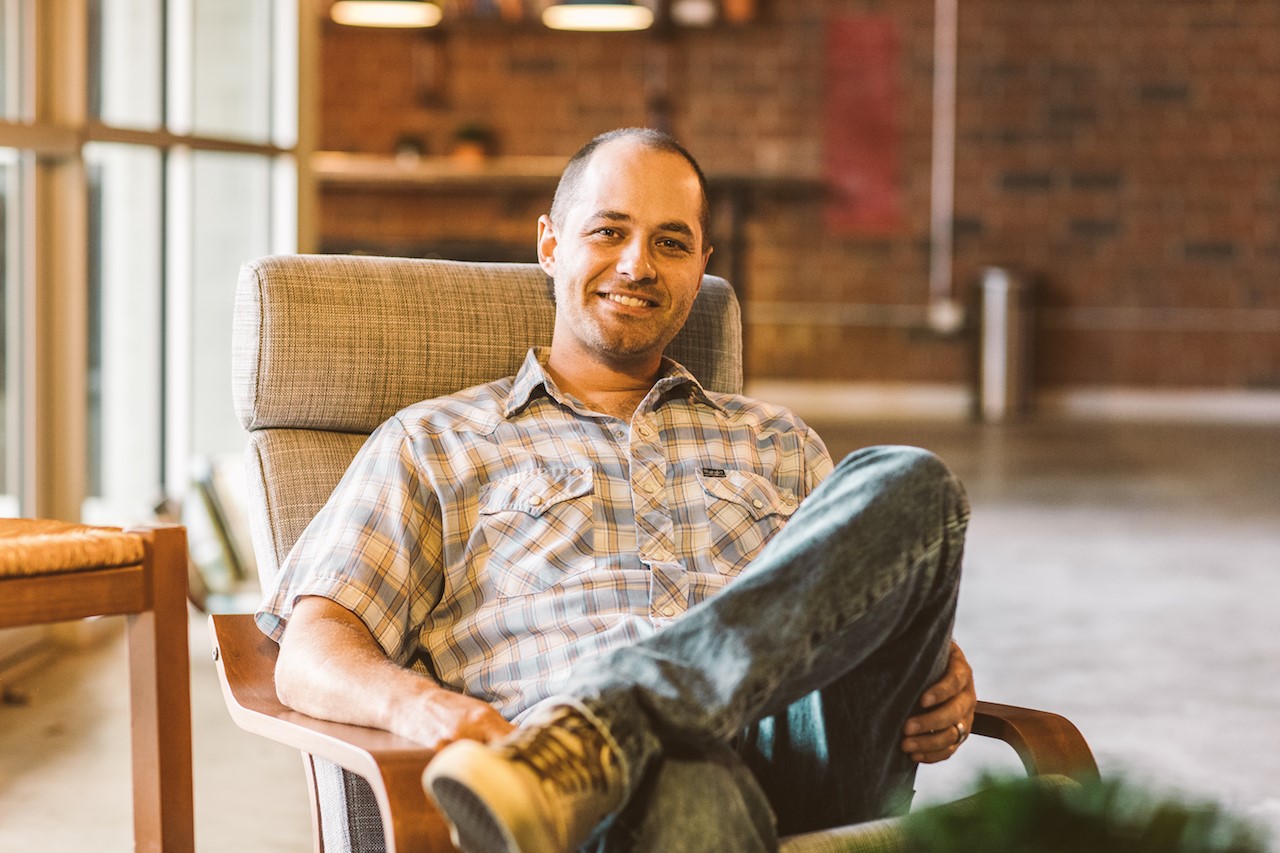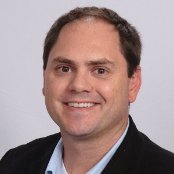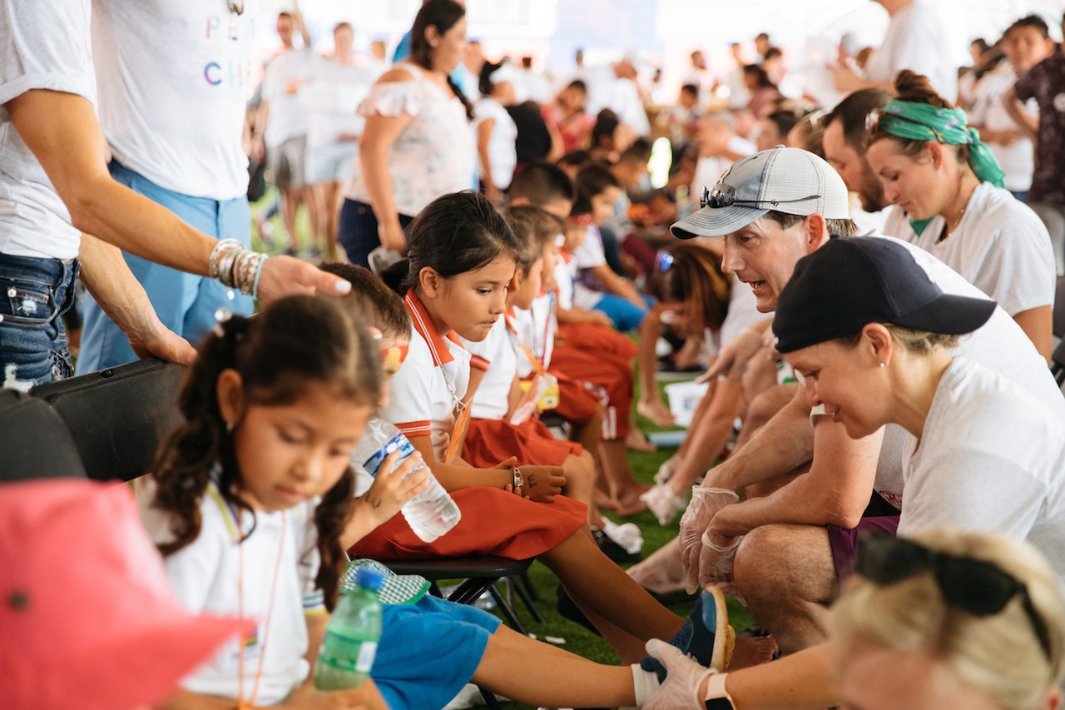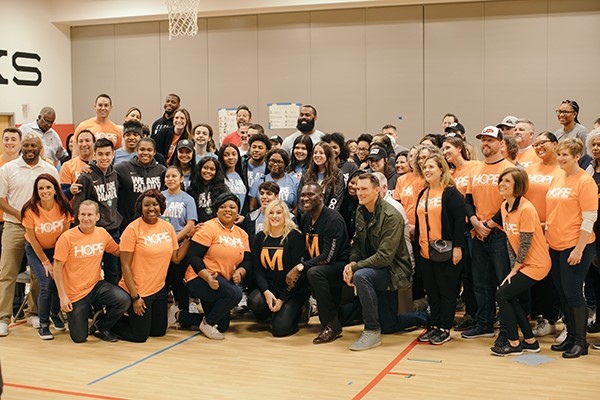How this Movement Center church bridges gaps across racial lines
David Docusen's phone rattles in a low hum and he instantly stops talking. His hand on the wheel, gaze on the road, he glances at the message flashing across the screen.
He lets out a breath. It's an emergency. A parishioner has a baby in the hospital.
Docusen knows what it means to face conflict and deal with hard issues. As pastor of Charlotte, N.C.'s Center City Church, he uses his pulpit to address racism and push for solutions to poverty. Last fall, at the urging of the Holy Spirit, Docusen says, he moved his mostly white, well-to-do congregation to the city's mostly black and low-income westside.
At its zenith, Center City Church had some 220 members. After the move, about 80 of them left, Docusen says.
"It's disappointing. I've had people tell me to my face we need to stop talking about all this race stuff and we need to start talking about the Gospel more," he says. "My response: this is the Gospel. You can't talk about the Gospel without talking about reconciliation."
It's not a message all pastors are willing to preach.
Eighty-four percent of Protestant pastors surveyed in 2015 said they spoke with a friend from another ethnic group within the last week but more than 70 percent said they speak on the issue of race at least once a year or never, according to data from LifeWay Research.
Docusen may be an exception.
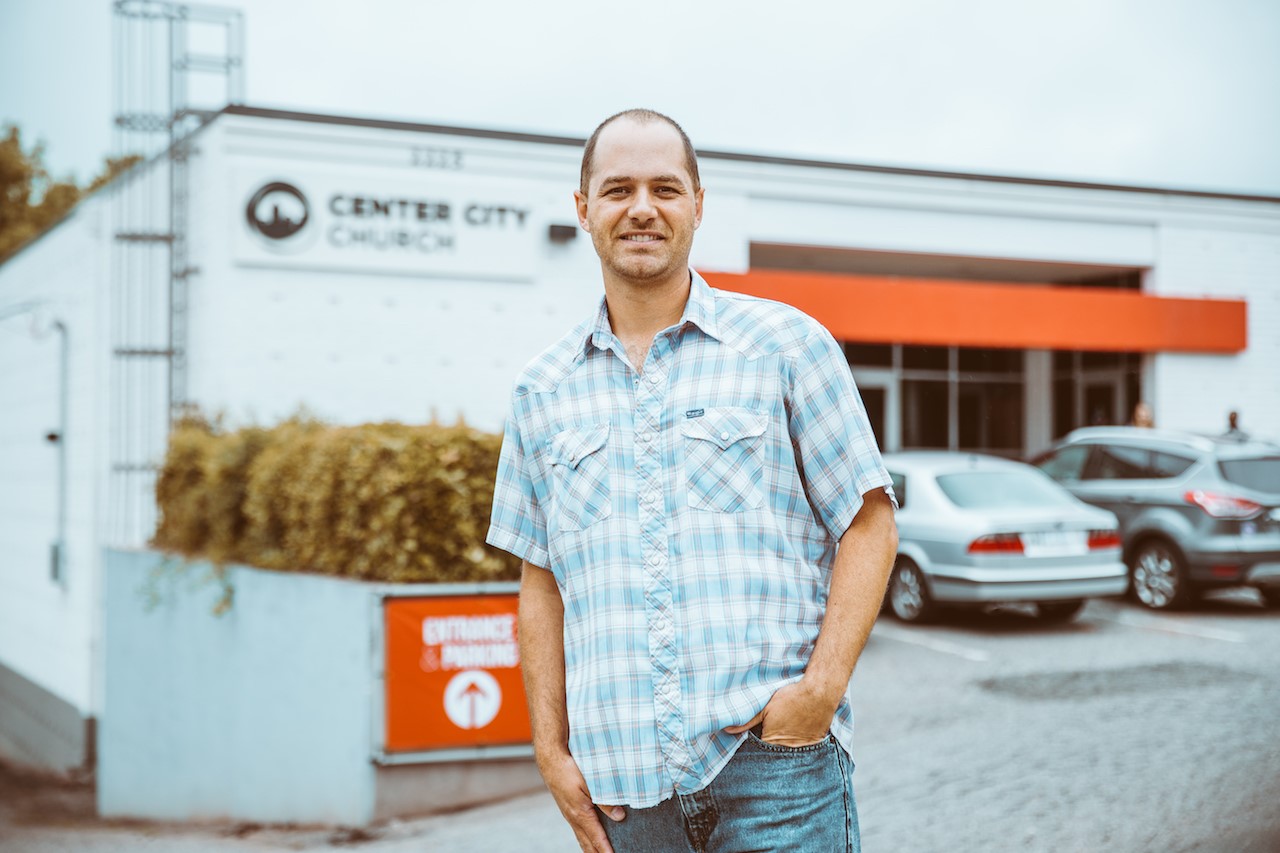
He uses his platform to promote racial healing and address generational poverty. His heart is to show people — poor and wealthy, white and black — how they can bridge divides and push for equity. The church earlier this year hosted a six-week series that explored Charlotte's history of racial hostility and economic disparity, and sought to find theological solutions to those problems. Docusen often touches on race and poverty in sermons. Members volunteer at neighborhood schools, and "adopt" local teachers as a means of encouraging them. Weekly community dinners compel congregants to form relationships with people who don't look like them.
And while Docusen remains uncertain of how such a message coming from him will resonate with the community, he's found a home and partner in the Movement Center.
The nonprofit Movement Foundation owns the center and runs it as a low or no-cost space where nonprofits and ministries collaborate on meeting needs in the community. The foundation aims to bring life, light and hope to communities across the globe by reinvesting in neighborhoods. Real estate is one of its primary vehicles of investment.
Since opening last year, the center's drawn tenants such as the Harvest Center of Charlotte, which serves the homeless, and UrbanPromise, an afterschool program for area youth. It also drew Docusen's church, and with it an influx of area residents who now call Center City Church their home church, the pastor says.
"There's no division in the Gospel (but) there's a divide in our city," Docusen says. "The only way an inequitable system changes is if people who are in positions of power learn how to share. Once you learn about this stuff, you either have to choose to address it with courage or choose to ignore it.
"And I can't ignore it. I just can't."
Enter the divide
The sky is overcast and gray as Docusen, 37, arrives outside the Rhino Market & Deli, a west Charlotte eatery that, by its own admission, is eclectic. It offers a specialized menu, an extensive collection of craft beer and wine and a hipster vibe.
A vibe that conflicts with the atmosphere a block up the street.
In west Charlotte, segregation and inequity are distressing bedfellows. The area encircles the prosperous center city, where multimillion-dollar corporations like Bank of America and Duke Energy are headquartered and some of the city's most influential and powerful live (NBA legend Michael Jordan owns one of its most illustrious penthouses).
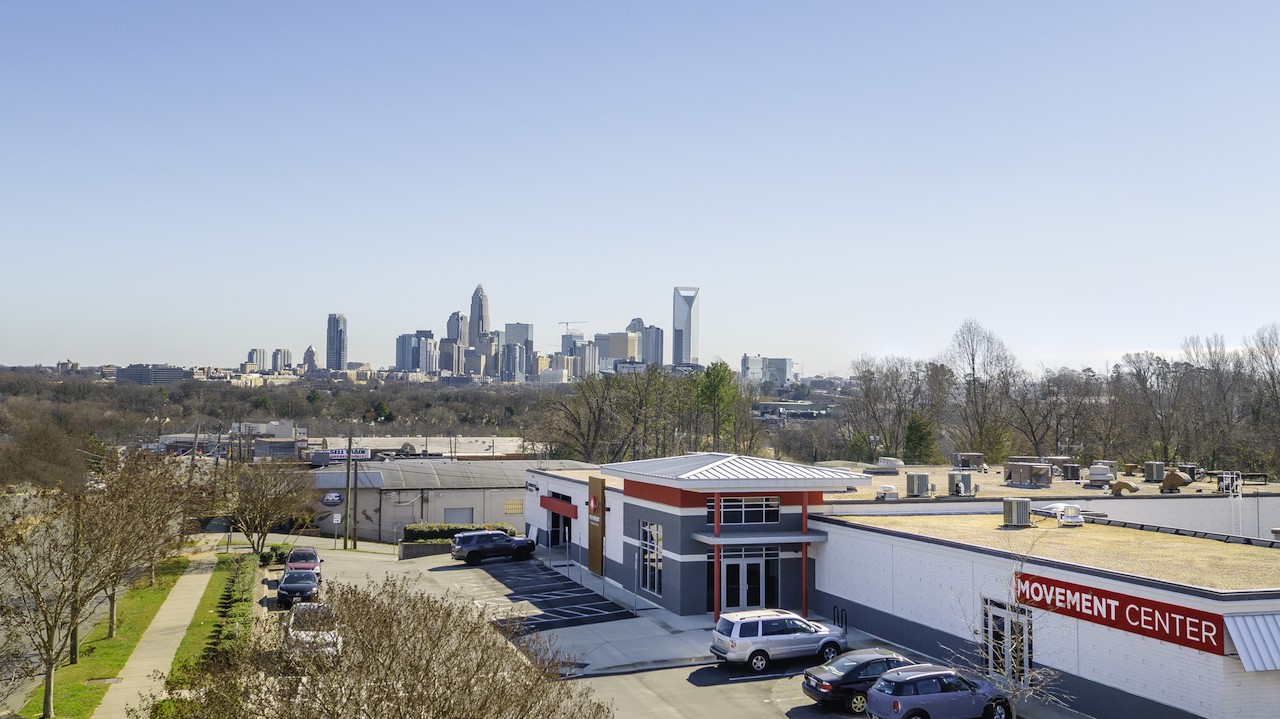
But just minutes away crime rates are high, drug traffic is prevalent and opportunities are few. The outlook is grim: a 2014 Harvard University study suggests that of all people living in the nation's 50 largest cities, the poor in Charlotte have the worst chances of escaping poverty and scaling the socioeconomic ladder.
Gentrification hasn't helped. While the intention is often to invest money and rehabilitate areas, the byproduct is sometimes damaging. Houses are leveled. Businesses, demolished. Families, broken. The result: entire communities of people — usually, people of color — displaced from the neighborhoods they built, inhabited and cultivated for generations. Meanwhile, glitz and glamor and fancy coffee shops flood the area, riding the waves of real estate development.
"It's supposed to mean lifting an area," Docusen says of gentrification. "Generally, it means filling an area with middle to upper-class white people and razing everything else."
Therein lies the tension the pastor faces each day as he sports his baseball cap and blue jeans and goes to work in a community whose trust he's trying to earn. His first stop today: Ashley Park PreK-8 School.
They're not saving anyone
At the front door waits Anthony, who greets Docusen with their special handshake (it involves a lot of hand slapping and an imaginary camera shutter). For the next 45 minutes, they'll sit at a desk and read about pulleys. Then, they'll switch to a story about the Avengers' Captain America and the Falcon winning tickets to a Yankees game.
Since January, Docusen, his wife Dara and about 20 other volunteers from Center City Church have visited Ashley Park every week to help students struggling with literacy sharpen their reading skills.
David's not coming here to save Anthony by reading to him once a week.” – Kelsey Black
Many of Ashley Park's students come from low-income families. Its halls are crowded — the student population stands at nearly 600, mainly because Charlotte-Mecklenburg Schools closed three neighborhood middle schools it said were underperforming. Those older students went to Ashley Park, once just an elementary school.
Docusen doesn't dwell on the why. His focus is on helping these kids dismantle the legacy of generational poverty. He hopes they evade the Cradle to Prison pipeline, the philosophy that, according to the Children's Defense Fund, means poor black and Latino children with gaps in early childhood education and a host of other disadvantages are by far more likely to stay poor and land in jail than their white counterparts.
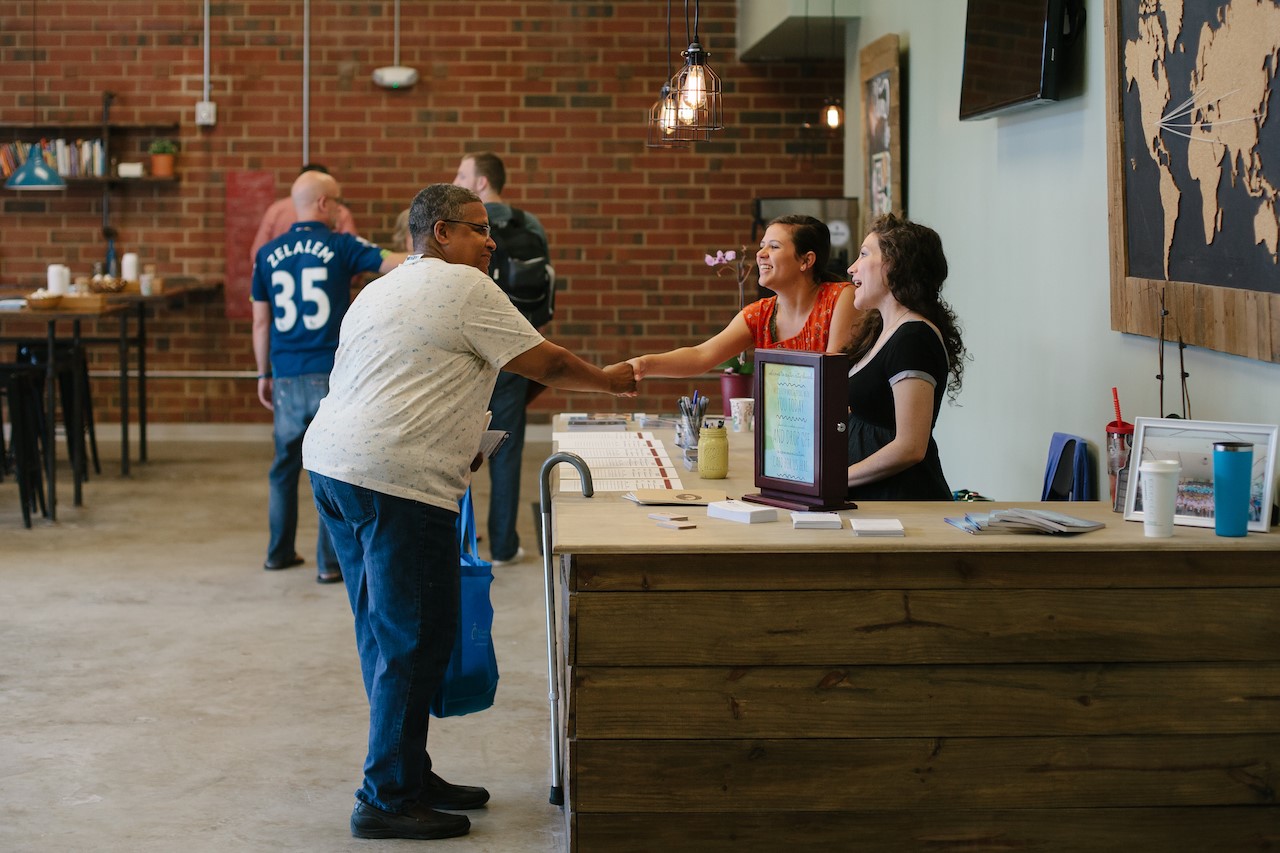
Don't be mistaken: Ashley Park's students are already incredible. Already talented. Already aspirational. The folks at Center City Church aren't there to save them. They're there to help them reach their full potential.
"David's not coming here to save Anthony by reading to him once a week," says Kelsey Black, a classroom leader at Ashley Park. "It's all about what they add. Nobody views what they do as them coming to save (the students)."
Dan Linsz has been a member of Center City Church for two years. He's now one of its executive pastors, overseeing the church's local and international engagement, and spearheading its partnership with Ashley Park. He sums up the relationship this way: "Our goal is to get to know the neighborhood, to come alongside people already doing stuff in the community."
Docusen calls it the principle of empowerment. Instead of preaching solutions, Center City Church works with people addressing issues in their community, people who know the answers but need more resources at their disposal.
"The upper middle class is not going to come up with the answer to fix poverty. It's going to come straight from the folks living in poverty," Docusen says. "There's brilliance coming from folks in this community, and they know what they need."
Today, they need volunteers reading with students in Ashley Park's library. "It doesn't take much to care," Docusen says. "If you can read, if you can love a kid, you can make a big difference."
Build the bridge
So why does Docusen care? Why is he, a white father who lives in one of the country's largest financial centers, so concerned with the fates of people whose lives don't seem to parallel his at all?
"It breaks my heart that things have been so imbalanced in my favor," he says. "I want to advocate for people who feel like they've been pushed aside."
Docusen was born in Detroit but his family moved to Orlando when he was still a boy. When he was 12, they fell on hard times and lived just above the federal poverty line. By age 14, he was working a landscaping job and helping his parents pay bills, buy groceries and keep the lights on.
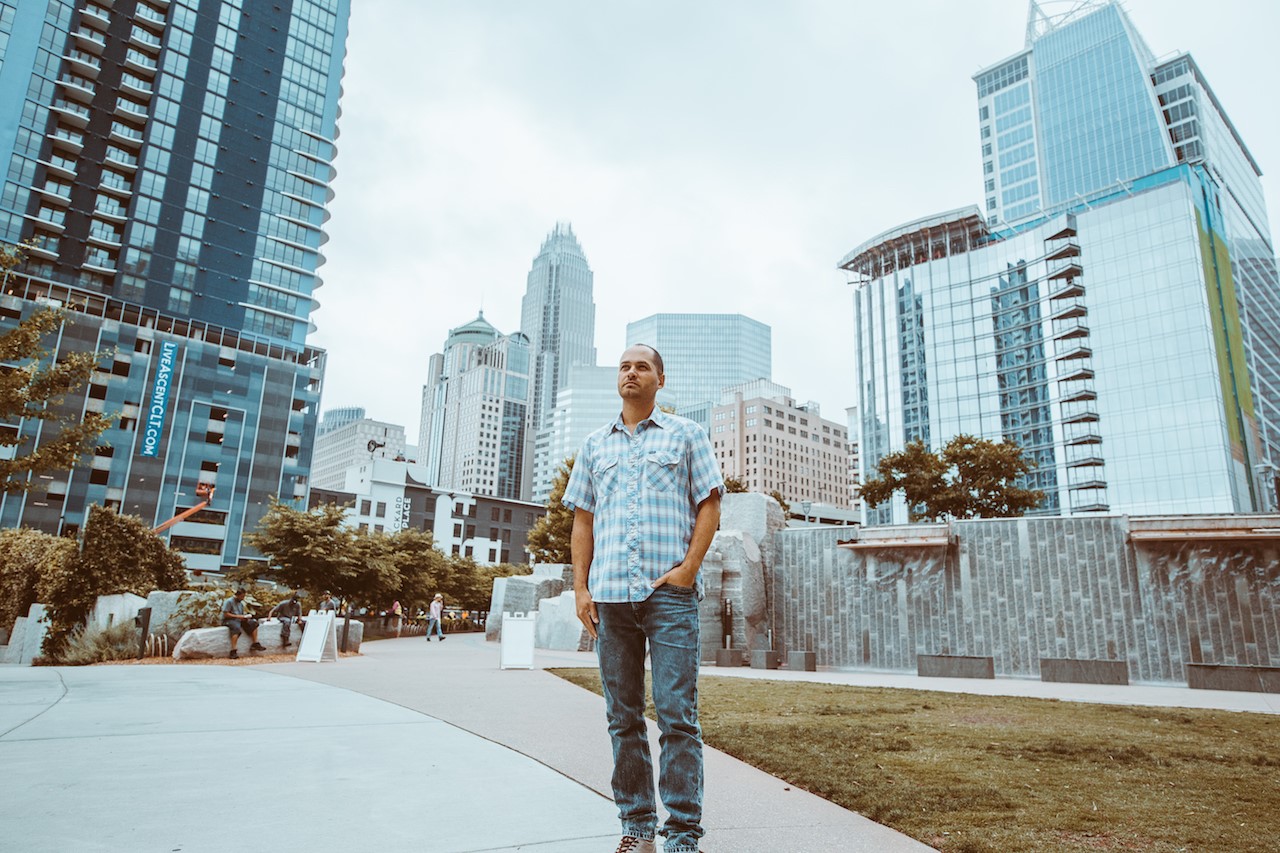
"I saw affluence and I saw need," he says today from his desk at the Movement Center. "I saw the way the community came around my family and how much we needed each other just to make it."
At 11, he says, he accepted the call to join the clergy at a youth ministry retreat. The pastor spoke about answering the call of God on one's life. Docusen, who planned to become a professional baseball player, answered yes.
Years later, he earned a degree in pastoral ministry from Southeastern University. He got his master's in ministerial leadership from the same school. Today, he's working on his doctor of ministry. He'll write his dissertation on the history and implications of generational poverty, and how Gospel-centered ministry can dispel it.
After working in a megachurch in Florida, helping start a church in Charlotte and then leaving, Docusen began hosting Bible studies in his home. The first one drew 17 people. Almost overnight, he says, the number grew to 35. Center City Church was born.
The call of this church is to be bridge builders between the rich and the poor. I don't think you can do ministry to one at the expense of the other.” – David Docusen
On Easter Sunday, 2010, the church hosted its first worship service in the auditorium of an elementary school in Charlotte's Elizabeth neighborhood. It stayed for six years, amassing up to 220 members.
But there was a problem. The congregation, Docusen says, wasn't diverse. "It was extremely homogenous," he says. "It matched the neighborhood. I just remember thinking to myself, 'This isn't going the way that I thought it would.'"
In spring 2015, Docusen learned about plans for the Movement Center. It seemed like the perfect place to make a change.
"The call of this church is to be bridge builders between the the rich and the poor," he says. "I don't think you can do ministry to one at the expense of the other."
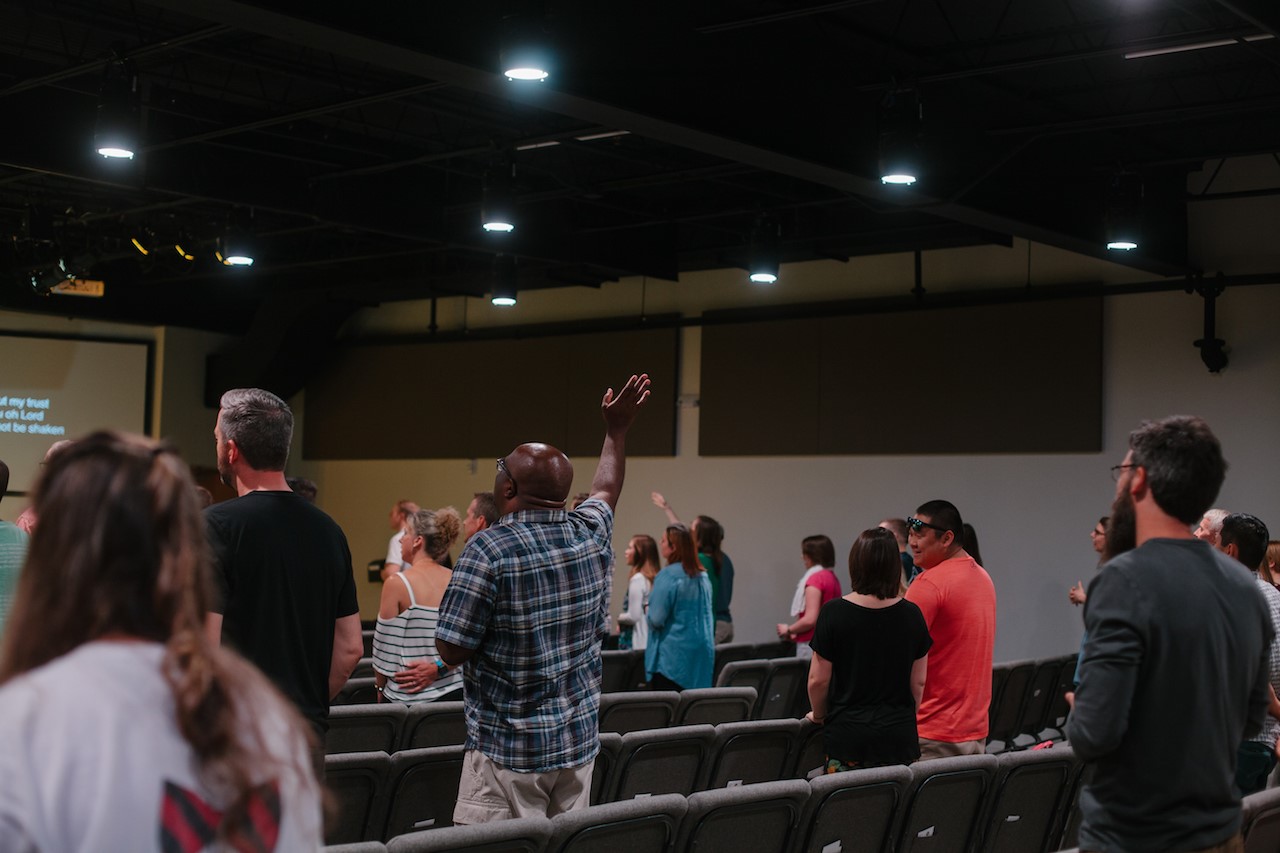
Speaking hard truths in love
So what does Center City Church look like on a Sunday morning?
This particular Sunday, it looks white, save for the black man in the grey and pink striped shirt who sits near the front. And the mom and daughter who sit to the right. There's a black couple sitting near the back, and a young black man nearby sporting sweatpants. Throughout the crowd, there are a few black and brown faces; Asian, too.
On stage, there's Sanchez Fair, the church's creative arts pastor who leads the congregation in praise songs. He's black, and married to a white woman.
"We're not afraid to address the hard issues," Fair says moments after playing his keyboard and belting holy melodies. "I'm grateful that we can speak those hard truths in love."
From the stage on Sunday, Docusen delivers a message on fasting and Lent. He urges congregants to allow God to take stock of their lives. He asks them to be OK with discomfort, even in their new home at the Movement Center.
"If you're just comfortable all the time, your life does not look like the life Jesus lived," he says. "This has been a tough six months. Just stick with it and be faithful. We're at the very beginning of this thing."
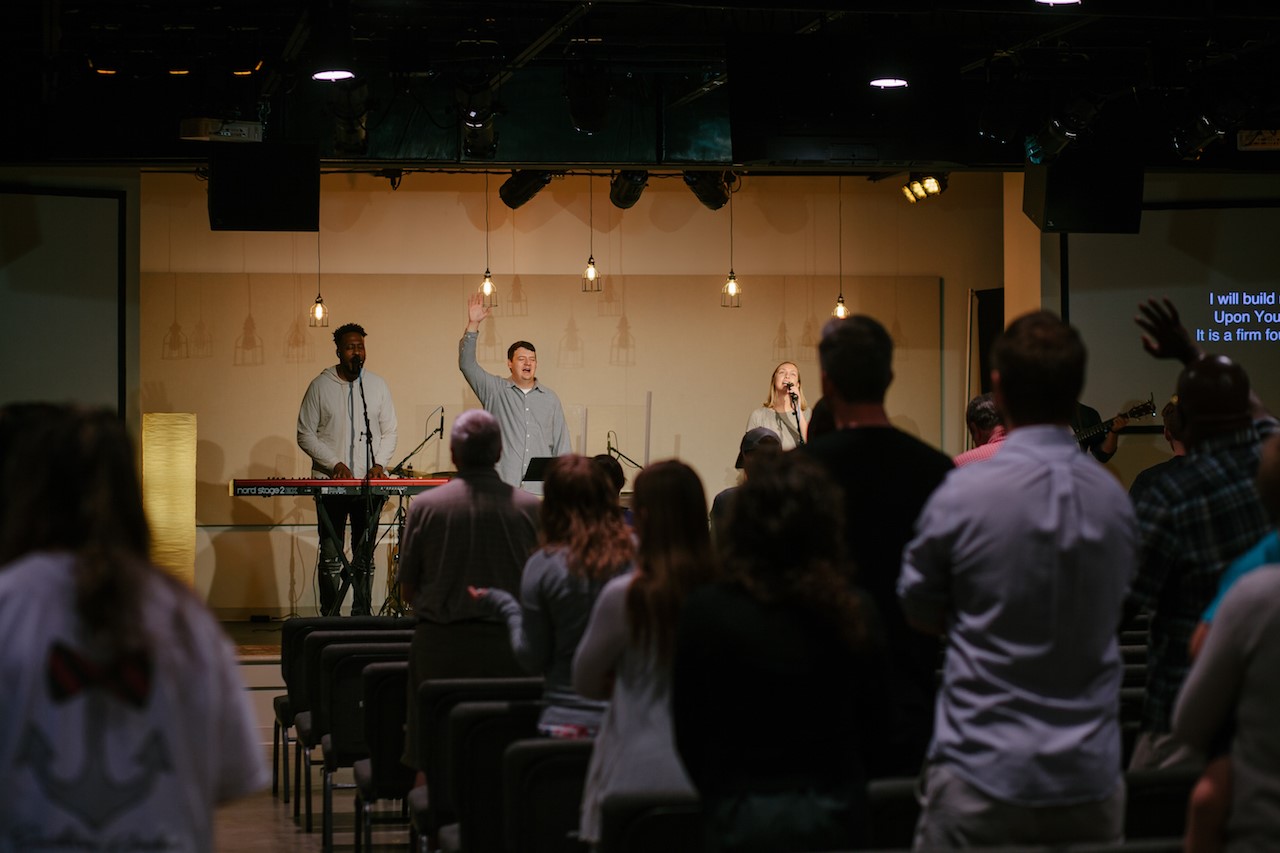
Jesus at the forefront
An hour later, service is over and Sherry Evans stands in the lobby. She extends her hand to a visitor and a conversation starts.
Evans has been a member of Center City Church almost since the beginning — it was six months old when she joined. Today, she's a church elder, a role that gives her a "mama bear" complex when it comes to safeguarding her community.
Jesus is still the focus. Week after week, it's about Jesus.” – Sherry Evans
She's also honest: when Docusen first relayed plans to move the church to west Charlotte, she was apprehensive. The church was wrestling with some leadership issues, and Evans felt moving when its own "house was not in order" could spell disaster.
"We were a growing church…in a lot of flux," she says. But her concerns sparked a series of conversations. Soon, Evans saw the value in a church that promotes racial healing as an extension of the Gospel.
"I think we're in a good place. It's not just about social justice. It's about hearts," she says. "Jesus is still the focus. Week after week, it's about Jesus."
Not everyone is as easily persuaded. In 2015, LifeWay Research released a study showing that 67 percent of American churchgoers believe their church has done enough to become racially diverse.
Only 37 percent of whites said their church should become more diverse compared to 51 percent of African-Americans and 47 percent of Hispanic Americans. Yet, 50 percent of all churchgoers agreed with the statement that churches in America are too segregated.
It's unclear whether Center City Church will, over time, buck the trend. One thing Docusen knows for sure: "Change won't happen in a year."

An uphill battle?
When Center City Church moved, a black pastor who's now a good friend told Docusen he faced an uphill battle. This pastor had been ministering in west Charlotte for 20 years, he told Docusen, and he's still trying to broker trust in the neighborhood.
"I felt really insecure about being a white guy trying to advocate for folks in a predominantly black neighborhood," Docusen says, but "I think God wants the story of reconciliation and diversity to shine for the unbelieving world."
The task Docusen's assigned to his congregation, and himself, is enormous, he acknowledges. With every message on race and injustice, there comes the realization that not everyone will like what he has to say.
He wants to avoid perceptions that his church is "the great white hope." He wants to address two weighty issues — racism and poverty — in a time when the national conversation on those topics is rife with tension. He wants people to understand their own prejudices but also wants them to be moved to action.
"I just have a lot of hope," Docusen says. "I have a lot of hope for the future."
